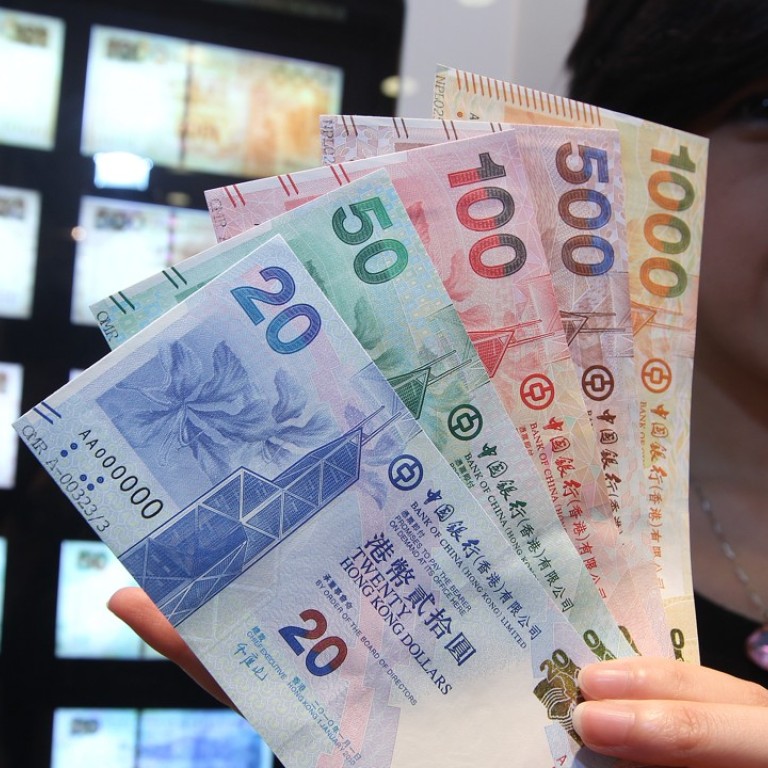
Hong Kong dollar weakens further following monetary authority comment
Hong Kong’s dollar witnessed its biggest weekly drop in a month on Friday after HKMA’s comments that it was not aiming to curb depreciation pressure.
The currency fell 0.06 per cent to HK$7.8130 against the US dollar on Friday, and has lost 0.09 per cent this week for its worst showing since November 17.
Under Hong Kong’s linked exchange rate system, the de facto central bank is obliged to prevent the local dollar from breaching either side of a trading band that ranges between HK$7.75 per dollar and HK$7.85 per dollar. In the current situation, it would sell US dollars and buy Hong Kong dollars when the HK$7.85 weak-side convertibility undertaking is triggered.
But market expectations had been building recently that the HKMA would issue extra exchange fund bills to soak up liquidity in the financial system to push up interbank rates in a pre-emptive move to prevent the Hong Kong dollar from falling to the HK$7.85 level.
So HKMA Chief Executive Norman Chan Tak-lam’s comments on Thursday that there were no plans to sell additional exchange fund bills crushed such expectations and resulted the currency to drop by as much as 0.11 per cent to HK$7.8124 in its biggest decline in 22 months.
Chan also said that the Hong Kong dollar falling to HK$7.85 was part of a process of interest rate normalisation and that he expected the weak-side convertibility undertaking to be triggered.
“The HKMA was explicit to say it will not issue notes to push up rates, so the Hong Kong dollar fell,” said Gary Yau, emerging market strategist at Credit Agricole Indosuez.
In any case, Raymond Yeung, Greater China chief economist at ANZ, said that additional bill issuances by the HKMA can reach a limit that would stop pushing up the bill yields and rates that would buoy the currency.
Such a “tipping point” is reached when the market interest rate has risen to a level where commercial banks would prefer to lend money to other banks instead of buying the notes.
The one-month Hibor, a gauge of funding levels in the interbank market, has already climbed about 67 basis points to its current level of 1.09 per cent, as liquidity tightened after the HKMA’s previous extra exchange fund bills sold since August.
Even without HKMA’s extra bill sales now, the one-month Hibor may rise towards the 1.5 per cent level early next year because of tightening liquidity conditions amid capital outflows, said Jasper Lo, senior vice-president at iBest Finance.

